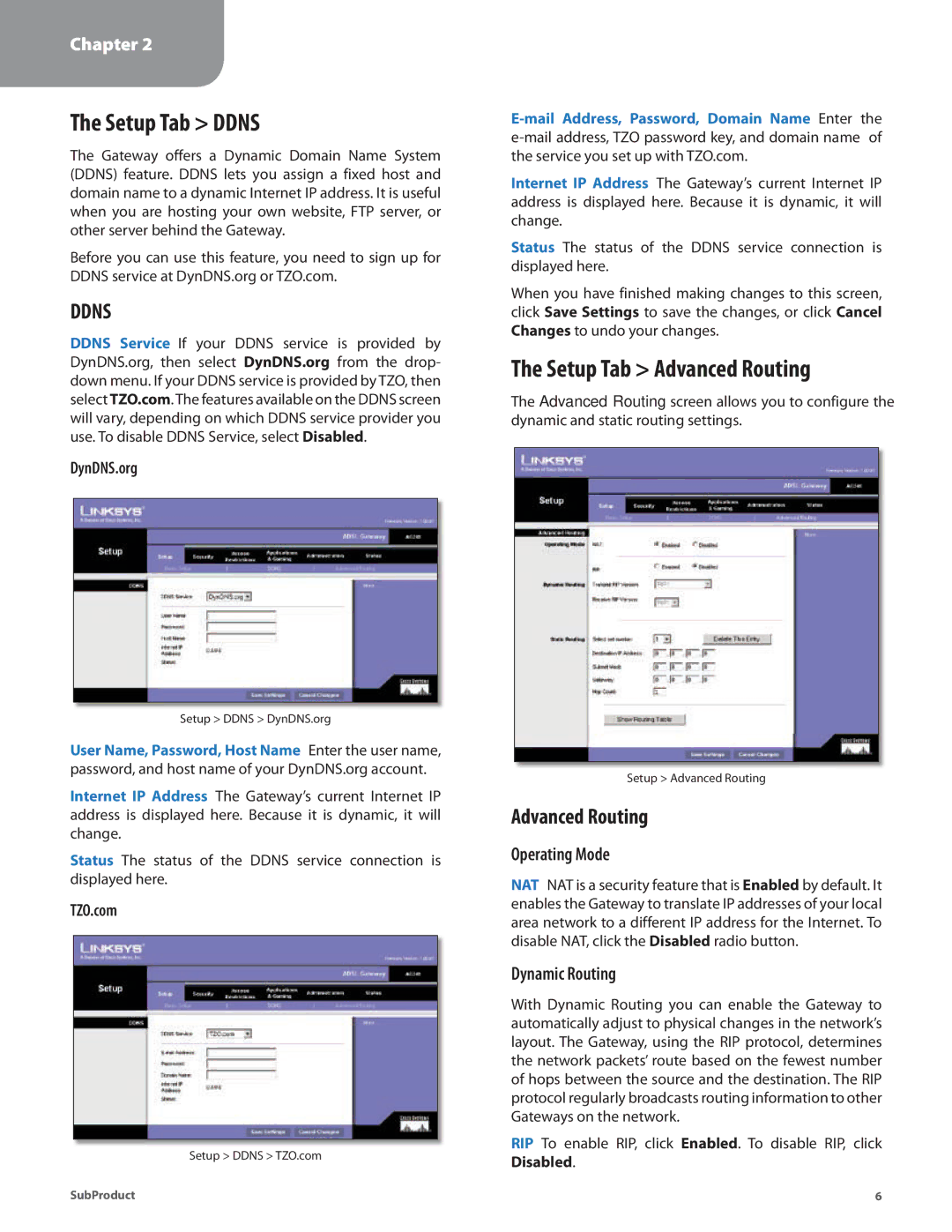
Chapter 2
Configuration
The Setup Tab > DDNS
The Gateway offers a Dynamic Domain Name System (DDNS) feature. DDNS lets you assign a fixed host and domain name to a dynamic Internet IP address. It is useful when you are hosting your own website, FTP server, or other server behind the Gateway.
Before you can use this feature, you need to sign up for DDNS service at DynDNS.org or TZO.com.
DDNS
DDNS Service If your DDNS service is provided by DynDNS.org, then select DynDNS.org from the drop- down menu. If your DDNS service is provided by TZO, then select TZO.com.The features available on the DDNS screen will vary, depending on which DDNS service provider you use. To disable DDNS Service, select Disabled.
DynDNS.org
Setup > DDNS > DynDNS.org
User Name, Password, Host Name Enter the user name, password, and host name of your DynDNS.org account.
Internet IP Address The Gateway’s current Internet IP address is displayed here. Because it is dynamic, it will change.
Status The status of the DDNS service connection is displayed here.
TZO.com
Setup > DDNS > TZO.com
Internet IP Address The Gateway’s current Internet IP address is displayed here. Because it is dynamic, it will change.
Status The status of the DDNS service connection is displayed here.
When you have finished making changes to this screen, click Save Settings to save the changes, or click Cancel Changes to undo your changes.
The Setup Tab > Advanced Routing
The Advanced Routing screen allows you to configure the dynamic and static routing settings.
Setup > Advanced Routing
Advanced Routing
Operating Mode
NAT NAT is a security feature that is Enabled by default. It enables the Gateway to translate IP addresses of your local area network to a different IP address for the Internet. To disable NAT, click the Disabled radio button.
Dynamic Routing
With Dynamic Routing you can enable the Gateway to automatically adjust to physical changes in the network’s layout. The Gateway, using the RIP protocol, determines the network packets’ route based on the fewest number of hops between the source and the destination. The RIP protocol regularly broadcasts routing information to other Gateways on the network.
RIP To enable RIP, click Enabled. To disable RIP, click Disabled.
SubProduct | 6 |
